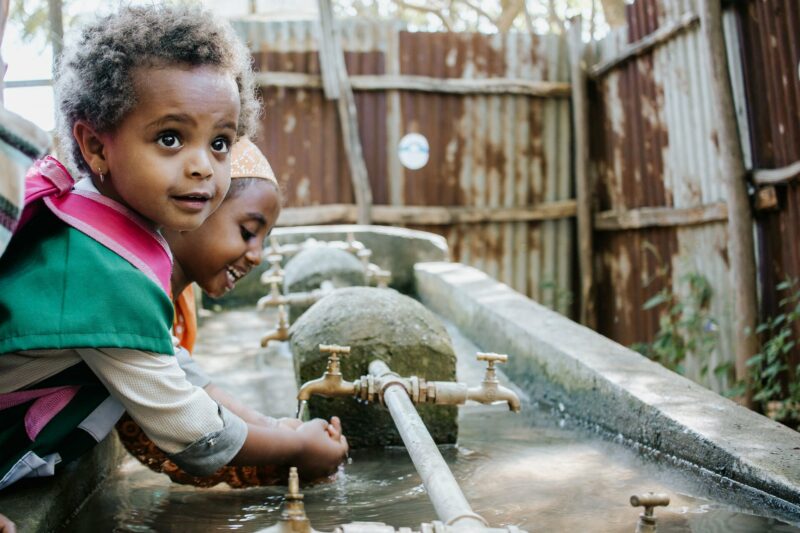Water projects – it sounds simple, but is so versatile! We support projects in various Viva con Agua countries and pursue the WASH approach. In addition, we were able to develop many other creative approaches which support the success of our projects. We collaborate with many local and international partner organizations.
… is the abbreviation for water, sanitation, hygiene. All supported projects are based on this triad. The interaction of WASH components supports the long-term and sustainable success of the individual project activities.![]()
We support most projects on the African continent. Our focus is on projects in Uganda, Ethiopia, Tanzania and South Africa. We maintain professional and personal relations with these countries and our local partner organizations, some of which have existed for many years.
One WASH in Uganda
South Africa WINS in South Africa
FogNets in Tanzania
John’s Rig in Ethiopia
WASH’N’SOUL in Zambia
Water towers in Mozambique
WASH Self-supply in Sierra Leone
Youth4Water in Simbabwe
Water for Ijaji Town in Ethiopia
WASH Systems Strengthening in Kenya
Solar water disinfection in India
Sustainable WASH Services in Nepal

What’s WASH? How are water projects being selected and funded? You’ll find answers within our WASH-FAQ.
When people and technology meet, development cooperation projects face special challenges. One thing’s for sure: Wells are not everything, but without wells, all is nothing! For this reason, we promote and develop holistic project approaches that go beyond the mere provision of hardware (besides wells, this also includes toilets, hand-washing facilities etc.) and contribute to the long-term operation of these facilities. Viva con Agua is constantly developing and consistently optimizing project quality in order to turn donations into an investment in sustainability and the improvement of projects.
WASH projects are complex . Therfor we support new approaches for an sustainable and longlasting design of projects within our WASH strategy: